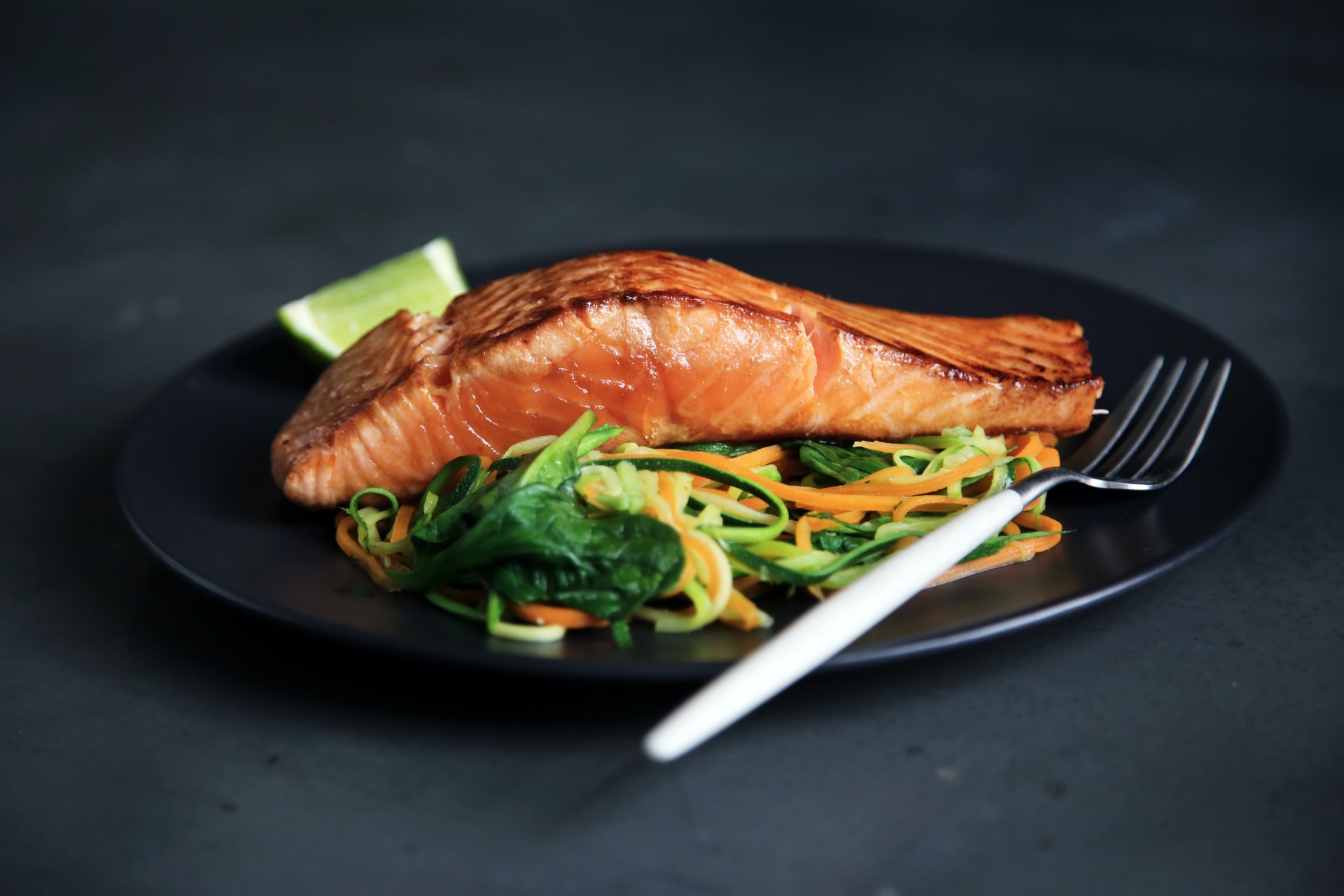Eggs are a popular staple on the keto diet. They’re very healthy too as eggs provide a variety of nutrients including protein, healthy fats, vitamins, and minerals. If you’re thinking about incorporating eggs into your low-carb eating plan, you’re probably asking how many eggs you can have per day.
We’re going to answer that below and show you other interesting facts about eggs — their nutritional profile, health benefits, recipes, and what happens if you eat too many eggs.
How Many Eggs Per Day Can You Have On Keto?
The number of eggs you can eat daily will depend on your personal keto macros. To get an estimate, let’s do the math. Recall that the keto diet is 60% fat, 30% protein, and 10% carbohydrates to reach ketosis (1). So, assuming you need 2,000 calories per day, your macros would look like:
- Fat: 2,000 * 0.6 = 1,200/9 = 133 grams
- Protein: 2,000 * 0.3 = 600/4 = 150 grams
- Carbohydrates: 2,000 * 0.1 = 200/4 = 50 grams
If you try to hit these macros by eating only eggs, that means you’ll need about 26 eggs in a day. But here’s the catch: We all know for sure that this is an unrealistic number.
While 26 eggs per day makes sense based on standard keto macros, a person just cannot survive on eating only eggs. Your body needs a variety of foods to get all the essential nutrients for optimal health — this is part of following a well-formulated keto diet (2).
You can, instead, incorporate eggs into your daily meal plan by eating a number that you can tolerate. Then, meet the remainder of your macros through other keto-friendly foods like meat, poultry, seafood, low-carb fruits and vegetables, nuts, and seeds.
Egg Nutrition Information
A large whole egg has 74 calories and it contains the following nutrients (3):
Macronutrients:
- 4.97 grams of fat
- 6.29 grams of protein
- 0.38 grams of carbs
Micronutrients (vitamins and minerals):
- Iron
- Phosphorus
- Potassium
- Vitamin A
- Vitamin C
- Vitamin D
- Choline
- Zinc
In order to get all the nutritional benefits that eggs have to offer, make sure that you’re eating the whole egg instead of leaving out the yolk (which some people on a standard American diet do due to their fear of fat).
Health Benefits of Eggs
It’s no secret that eggs are among the most nutritious foods on the planet. Not just that, but eggs are so affordable and versatile, you can cook them in many different ways. Later on in this article, I’ll share some egg recipe ideas!
So, here are the ways your body benefits from whole eggs:
- A quality source of protein. If you’re looking for high-quality protein to support your workouts, build muscle on keto, and repair your tissues, eggs would be a great choice. A study also revealed that egg yolk protein offers greater satiety than other protein sources (4).
- Promotes a healthy nervous system. One large egg contains 140 milligrams of choline in its yolk. Choline is an essential nutrient that’s needed to make acetylcholine, a neurotransmitter.
- Supports good vision. Eggs contain nutrients that are beneficial for eye health such as vitamins A, vitamin C, and zinc.
- Can boost your immunity. A 2021 study published at Frontiers in Nutrition suggested that egg white proteins can enhance the immune system along with their antimicrobial and immunomodulatory effects (5).
Will Eating Eggs Help You Lose Weight On Keto?
The answer to that is yes, eggs support and boost weight loss, thanks to their high protein and fat content that increase satiety. Consuming protein, which you can do by eating eggs, can make you burn more calories due to protein’s high thermic effect (6).
Some people who experience a plateau on keto consider doing an egg fast to start seeing weight loss again. For those who are interested, note that an egg fast is a short-term approach that lasts only 3-5 days.
As mentioned earlier in this article, consuming only eggs can increase your risk of nutritional deficiencies as eggs lack some essential nutrients found in other keto foods.
Keto Recipes With Eggs
Now that you have an idea of the number of eggs you can eat daily, their health benefits, and potential for weight loss, check out these seven easy egg recipes to try!
- Breakfast egg cups
- Ground beef omelette
- Keto baked eggs
- Egg casserole with zucchini and ham
- Egg salad
- Cloud eggs recipe
- Keto egg drop soup
These recipes only prove that there are plenty of ways to enjoy eggs, especially when they’re paired with other whole ingredients for a healthful meal.
Are There Downsides of Eating Too Many Eggs?
Consuming too many eggs than you can handle at once presents various issues. You may experience diarrhea and bloating, especially when you’re not used to high amounts of fat or if you have egg intolerance.
Instead of going all in with eggs, start with just one or two large eggs during each meal along with other foods. Then observe how you feel. If possible, keep a food journal where you take note of your meals and reactions towards them.
What Can I Eat Instead of Eggs On Keto? (Alternatives)
If you cannot eat eggs due to an allergy, intolerance, or you wish to avoid animal products on keto, then you can explore other low-carb sources of protein and fat. Plant-based options include avocados, pecans, chia seeds, macadamia nuts, and almonds, while animal-based options include various meats, poultry, and seafood.
Conclusion
Eggs are a healthy keto staple. While our calculation tells us that you could eat 26 eggs per day on a 2,000-calorie keto diet to meet your macros, that number is unrealistic and has negative implications. Relying only on eggs would put you at risk for nutritional deficiencies and too many eggs cause digestive upset.
You can, however, eat a number of eggs that you can tolerate, like 1-2 large eggs per meal. Then, you meet your remaining macros by consuming other protein- and fat-containing keto foods. Feel free to experiment with various egg recipes out there, and keep on reminding yourself of the ways that eggs boost your health!
References:
- Masood W, Annamaraju P, Uppaluri K. Ketogenic Diet. 2022 June 11
- Phinney S, Volek J. The Ten Defining Characteristics of a Well-Formulated Ketogenic Diet. 2018 August 13
- Fat Secrets. Egg
- Kuang H, Yang F, Zhang Y et al. The Impact of Egg Nutrient Composition and Its Consumption on Cholesterol Homeostasis. 2018 August 23
- Batiha G, Alqarni M, Awad D et al. Dairy-Derived and Egg White Proteins in Enhancing Immune System Against COVID-19. 2021 July 12
- Pesta D, Samuel V. A high-protein diet for reducing body fat: mechanisms and possible caveats. 2014 November 19



